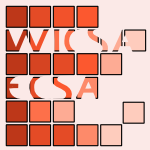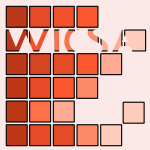133 papers:
 HCI-UC-2015-GofukuFU
HCI-UC-2015-GofukuFU- Some Investigations of Fukushima Dai-ichi Accidents from the Viewpoints of Human Factors (AG, HF, HU), pp. 314–326.
 HIMI-IKC-2015-AraiTA #development #learning
HIMI-IKC-2015-AraiTA #development #learning- Development of a Learning Support System for Class Structure Mapping Based on Viewpoint (TA, TT, TA), pp. 285–293.
 ICEIS-v2-2015-OliveiraF #bibliography #enterprise #framework #policy #sorting
ICEIS-v2-2015-OliveiraF #bibliography #enterprise #framework #policy #sorting- A Spatial Data Infrastructure Review — Sorting the Actors and Policies from Enterprise Viewpoint (ILO, JLF), pp. 287–294.
 SAC-2015-ErnstKR #evaluation #network #performance
SAC-2015-ErnstKR #evaluation #network #performance- Performance evaluation of heterogeneous wireless networks considering competing objectives and viewpoints (JBE, SCK, JJPCR), pp. 680–687.
 HIMI-AS-2014-MakiY #3d #image #multi #using
HIMI-AS-2014-MakiY #3d #image #multi #using- 3D CG Integral Photography Artwork Using Glittering Effects in the Post-processing of Multi-viewpoint Rendered Images (NM, KY), pp. 546–554.
 HIMI-AS-2014-UeiFKNKS #design #education #evaluation #learning
HIMI-AS-2014-UeiFKNKS #design #education #evaluation #learning- Learning Effect Evaluation of an Educational Tool for Product-Service System Design Based on Learner Viewpoints (KU, TF, AK, YN, KK, YS), pp. 643–652.
 ICPR-2014-TabuchiTDIMKK #estimation #memory management #multi #people
ICPR-2014-TabuchiTDIMKK #estimation #memory management #multi #people- Spatial People Density Estimation from Multiple Viewpoints by Memory Based Regression (YT, TT, DD, II, HM, TK, KK), pp. 2209–2214.
 KDD-2014-YaoTXL #predict
KDD-2014-YaoTXL #predict- Predicting long-term impact of CQA posts: a comprehensive viewpoint (YY, HT, FX, JL), pp. 1496–1505.
 KR-2014-DunneDLW #multi
KR-2014-DunneDLW #multi- Characteristics of Multiple Viewpoints in Abstract Argumentation (PED, WD, TL, SW).
 QoSA-2013-TekinerdoganD #architecture #evaluation #framework
QoSA-2013-TekinerdoganD #architecture #evaluation #framework- Evaluation framework for software architecture viewpoint languages (BT, ED), pp. 89–98.
 ICPC-2013-KobayashiKYKM #architecture #visualisation
ICPC-2013-KobayashiKYKM #architecture #visualisation- SArF map: Visualizing software architecture from feature and layer viewpoints (KK, MK, KY, KK, AM), pp. 43–52.
 CHI-2013-Ortega #3d #automation #using
CHI-2013-Ortega #3d #automation #using- 3D object position using automatic viewpoint transitions (MO), pp. 193–196.
 DUXU-PMT-2013-HamaKKIN #design #experience #framework #novel #social #user interface
DUXU-PMT-2013-HamaKKIN #design #experience #framework #novel #social #user interface- Novel Method of Evaluating GUI Design from the Viewpoint of Worker Experience — Central Control Systems for Social Infrastructure (DH, MK, MK, KI, MN), pp. 283–293.
 HIMI-LCCB-2013-TachizawaOM #automation #bibliography #classification
HIMI-LCCB-2013-TachizawaOM #automation #bibliography #classification- An Automatic Classification of Product Review into Given Viewpoints (YT, MO, HM), pp. 598–606.
 ICEIS-v2-2013-SierraCVCV #education #re-engineering #recommendation
ICEIS-v2-2013-SierraCVCV #education #re-engineering #recommendation- Microworld-type Ethnoeducational Computer Materials to Support the Teaching of Nasa-Yuwe — Recommendations from a Software Engineering Disciplines Viewpoint for Constructing Microworld-type Ethnoeducational Materials Aimed at Supporting Nasa Yuwe Language Teaching (LMS, EASC, JAV, TRC, EMV), pp. 526–531.
 SAC-2013-MatiasOA #case study #experience #operating system #quality #reliability
SAC-2013-MatiasOA #case study #experience #operating system #quality #reliability- Operating system reliability from the quality of experience viewpoint: an exploratory study (RMJ, GDO, LBdA), pp. 1644–1649.
 WICSA-ECSA-2012-GalsterA #enterprise #variability
WICSA-ECSA-2012-GalsterA #enterprise #variability- A Variability Viewpoint for Enterprise Software Systems (MG, PA), pp. 267–271.
 WICSA-ECSA-2012-HeeschAH #architecture
WICSA-ECSA-2012-HeeschAH #architecture- Forces on Architecture Decisions — A Viewpoint (UvH, PA, RH), pp. 101–110.
 WICSA-ECSA-2012-HilliardMMP #architecture #composition #framework #on the #reuse
WICSA-ECSA-2012-HilliardMMP #architecture #composition #framework #on the #reuse- On the Composition and Reuse of Viewpoints across Architecture Frameworks (RH, IM, HM, PP), pp. 131–140.
 WICSA-ECSA-2012-RazavianL #migration
WICSA-ECSA-2012-RazavianL #migration- A Viewpoint for Dealing with Change in Migration to Services (MR, PL), pp. 201–205.
 CHI-2012-TaylorMBMREFWO #community #named
CHI-2012-TaylorMBMREFWO #community #named- Viewpoint: empowering communities with situated voting devices (NT, JM, ABR, JM, JR, PE, DMF, PCW, PO), pp. 1361–1370.
 ICPR-2012-SharmaCL #3d
ICPR-2012-SharmaCL #3d- A free viewpoint 3DTV system based on parameterized variety model (MS, SC, BL), pp. 1026–1029.
 ICPR-2012-ZhangLMA #detection #independence #statistics
ICPR-2012-ZhangLMA #detection #independence #statistics- A viewpoint-independent statistical method for fall detection (ZZ, WL, VM, VA), pp. 3626–3630.
 TOOLS-EUROPE-2012-WimmerMV #co-evolution
TOOLS-EUROPE-2012-WimmerMV #co-evolution- Viewpoint Co-evolution through Coarse-Grained Changes and Coupled Transformations (MW, NM, AV), pp. 336–352.
 ECSA-2011-DemirliT #architecture
ECSA-2011-DemirliT #architecture- Software Language Engineering of Architectural Viewpoints (ED, BT), pp. 336–343.
 ECSA-2011-TekinerdoganS #architecture #quality
ECSA-2011-TekinerdoganS #architecture #quality- Defining Architectural Viewpoints for Quality Concerns (BT, HS), pp. 26–34.
 CSEET-2011-Damasceno #student
CSEET-2011-Damasceno #student- MSE studio project: The viewpoint of a UC student (AD), pp. 502–506.
 CHI-2011-MankoffKKRW #modelling #online
CHI-2011-MankoffKKRW #modelling #online- Competing online viewpoints and models of chronic illness (JM, KK, SBK, JAR, KW), pp. 589–598.
 CHI-2011-ZhuGT #modelling #multi
CHI-2011-ZhuGT #modelling #multi- Exploring camera viewpoint control models for a multi-tasking setting in teleoperation (DZ, TG, KT), pp. 53–62.
 IDGD-2011-HuangHL #design
IDGD-2011-HuangHL #design- Exploration of the Cultural Product Design of the National Palace Museum from a Qualia Viewpoint (MHH, WH, RL), pp. 65–74.
 ICEIS-v3-2011-PanfilenkoLWL #architecture #enterprise #traceability
ICEIS-v3-2011-PanfilenkoLWL #architecture #enterprise #traceability- Traceability and Viewpoints in Enterprise Architectures (DP, RL, DW, PL), pp. 150–156.
 KDD-2011-Boire #case study #data mining #lessons learnt #mining
KDD-2011-Boire #case study #data mining #lessons learnt #mining- The practitioner’s viewpoint to data mining: key lessons learned in the trenches and case studies (RB), p. 785.
 KDD-2011-TongHWKL #graph #optimisation #ranking #scalability
KDD-2011-TongHWKL #graph #optimisation #ranking #scalability- Diversified ranking on large graphs: an optimization viewpoint (HT, JH, ZW, RK, CYL), pp. 1028–1036.
 CSL-2011-Ehrhard #difference #λ-calculus
CSL-2011-Ehrhard #difference #λ-calculus- Resource λ-Calculus: the Differential Viewpoint (TE), p. 1.
 EDOC-2010-PostinaTS
EDOC-2010-PostinaTS- An EA-approach to Develop SOA Viewpoints (MP, JT, US), pp. 37–46.
 KMIS-2010-GonzalezCPL #usability
KMIS-2010-GonzalezCPL #usability- Developing Argument Assistant Systems from a Usability Viewpoint (MPG, CIC, NP, MJGL), pp. 157–163.
 WICSA-ECSA-2009-AriasAA #execution #scalability
WICSA-ECSA-2009-AriasAA #execution #scalability- Defining execution viewpoints for a large and complex software-intensive system (TBCA, PA, PA), pp. 1–10.
 WICSA-ECSA-2009-GuL #architecture #on the
WICSA-ECSA-2009-GuL #architecture #on the- On service-oriented architectural concerns and viewpoints (QG, PL), pp. 289–292.
 WICSA-ECSA-2009-RazavizadehVCD #architecture #multi
WICSA-ECSA-2009-RazavizadehVCD #architecture #multi- Multiple viewpoints architecture extraction (AR, HV, SC, SD), pp. 329–332.
 WICSA-ECSA-2009-WieczorekRSKCKS #architecture #modelling
WICSA-ECSA-2009-WieczorekRSKCKS #architecture #modelling- Viewpoints for modeling choreographies in service-oriented architectures (SW, AR, AS, VK, AC, FMK, IS), pp. 11–20.
 WICSA-ECSA-2009-WoodsR #architecture
WICSA-ECSA-2009-WoodsR #architecture- The system context architectural viewpoint (EW, NR), pp. 333–336.
 HCD-2009-GonzalezPST #development #interface #process
HCD-2009-GonzalezPST #development #interface #process- Development of CSCW Interfaces from a User-Centered Viewpoint: Extending the TOUCHE Process Model through Defeasible Argumentation (MPG, VMRP, GRS, RT), pp. 955–964.
 HCD-2009-KobayashiN #guidelines #matrix #usability
HCD-2009-KobayashiN #guidelines #matrix #usability- Mapping of Usability Guidelines onto User’s Temporal Viewpoint Matrix (TK, HN), pp. 75–83.
 EDOC-2009-RomeroJV #multi #specification
EDOC-2009-RomeroJV #multi #specification- Realizing Correspondences in Multi-viewpoint Specifications (JRR, JIJ, AV), pp. 163–172.
 KDD-2009-AsurP #analysis #approach #graph #interactive
KDD-2009-AsurP #analysis #approach #graph #interactive- A viewpoint-based approach for interaction graph analysis (SA, SP), pp. 79–88.
 WICSA-2008-Kennaley #3d #architecture #framework #quote
WICSA-2008-Kennaley #3d #architecture #framework #quote- “The 3+1 Views of Architecture (in 3D)”: An Amplification of the 4+1 Viewpoint Framework (MK), pp. 299–302.
 ITiCSE-2008-KollanusI #agile #case study #development #education #experience #testing
ITiCSE-2008-KollanusI #agile #case study #development #education #experience #testing- Test-driven development in education: experiences with critical viewpoints (SK, VI), pp. 124–127.
 ICPR-2008-JeanBA #invariant #normalisation #recognition
ICPR-2008-JeanBA #invariant #normalisation #recognition- Trajectories normalization for viewpoint invariant gait recognition (FJ, RB, ABA), pp. 1–4.
 ICPR-2008-UkitaKK #using
ICPR-2008-UkitaKK #using- IBR-based free-viewpoint imaging of a complex scene using few cameras (NU, SK, MK), pp. 1–4.
 ICPR-2008-YamauchiSS
ICPR-2008-YamauchiSS- Calibration of a structured light system by observing planar object from unknown viewpoints (KY, HS, YS), pp. 1–4.
 ICPR-2008-YuOWL #3d #approach #estimation #novel
ICPR-2008-YuOWL #3d #approach #estimation #novel- A novel 3-D motion estimation approach to virtual viewpoint control (YKY, SHO, KhW, KKL), pp. 1–4.
 BX-2008-Vallecillo1 #multi #specification
BX-2008-Vallecillo1 #multi #specification- Realizing Correspondences in Multi-viewpoint Specifications (AV), p. 33.
 HCI-MIE-2007-Lee07b #3d #game studies #self
HCI-MIE-2007-Lee07b #3d #game studies #self- Emotion and Sense of Telepresence: The Effects of Screen Viewpoint, Self-transcendence Style, and NPC in a 3D Game Environment (JJL), pp. 393–400.
 ICEIS-EIS-2007-AddinquyT #enterprise #requirements #specification #using
ICEIS-EIS-2007-AddinquyT #enterprise #requirements #specification #using- Reducing Requirements to EIS Specifications GAP Using RM-ODP Enterprise Viewpoint (CA, BT), pp. 31–38.
 SIGIR-2007-Seki
SIGIR-2007-Seki- Opinion holder extraction from author and authority viewpoints (YS), pp. 841–842.
 FASE-2006-Sacha #evaluation #quality
FASE-2006-Sacha #evaluation #quality- Evaluation of Expected Software Quality: A Customer’s Viewpoint (KS), pp. 170–183.
 ICPR-v1-2006-TanakaHOK
ICPR-v1-2006-TanakaHOK- Use of Viewpoint Information for Example Selection in CBIR (KT, MH, NO, EK), p. 1054.
 ICPR-v1-2006-ToewsA #detection #invariant
ICPR-v1-2006-ToewsA #detection #invariant- Detection Over Viewpoint via the Object Class Invariant (MT, TA), pp. 765–768.
 ICPR-v1-2006-WangCWG #invariant #recognition #verification
ICPR-v1-2006-WangCWG #invariant #recognition #verification- A Verification Method for Viewpoint Invariant Sign Language Recognition (QW, XC, CW, WG), pp. 456–459.
 ICPR-v2-2006-YamadaS #invariant #recognition
ICPR-v2-2006-YamadaS #invariant #recognition- Space-Time Moment Invariants and Recognition of Non-Rigid Motions from Arbitrary Viewpoints (TY, JS), pp. 990–993.
 ICPR-v3-2006-KongGT #approach #invariant
ICPR-v3-2006-KongGT #approach #invariant- A Viewpoint Invariant Approach for Crowd Counting (DK, DG, HT), pp. 1187–1190.
 SAC-2006-IfinedoN #enterprise #metric #resource management
SAC-2006-IfinedoN #enterprise #metric #resource management- Prioritization of enterprise resource planning (ERP) systems success measures: viewpoints of two organizational stakeholder groups (PI, NN), pp. 1554–1560.
 IWPC-2005-GuiKM #comprehension #named #web
IWPC-2005-GuiKM #comprehension #named #web- REGoLive: Web Site Comprehension with Viewpoints (GG, HMK, HAM), pp. 161–164.
 EDOC-2005-RomeroV #modelling #uml
EDOC-2005-RomeroV #modelling #uml- Modeling the ODP Computational Viewpoint with UML 2.0 (JRR, AV), pp. 169–180.
 ICEIS-v1-2005-BenchikhaB #database #object-oriented
ICEIS-v1-2005-BenchikhaB #database #object-oriented- Extending Object Oriented Databases to Support the Viewpoint Mechanism (FB, MB), pp. 273–278.
 MLDM-2005-DerichsDN #integration #multi #recognition
MLDM-2005-DerichsDN #integration #multi #recognition- Cost Integration in Multi-step Viewpoint Selection for Object Recognition (CD, FD, HN), pp. 415–425.
 SEKE-2005-Kjaergaard #abstraction #architecture #on the
SEKE-2005-Kjaergaard #abstraction #architecture #on the- On Abstraction Levels for Software Architecture Viewpoints (MBK), pp. 424–429.
 SIGIR-2005-KadobayashiT #3d
SIGIR-2005-KadobayashiT #3d- 3D viewpoint-based photo search and information browsing (RK, KT), pp. 621–622.
 SIGIR-2005-LiuHW #information management #retrieval
SIGIR-2005-LiuHW #information management #retrieval- Information sharing through rational links and viewpoint retrieval (BL, DJH, SNKW), pp. 639–640.
 RE-2005-EasterbrookYAFHLQ #case study #concept #modelling
RE-2005-EasterbrookYAFHLQ #case study #concept #modelling- Do Viewpoints Lead to Better Conceptual Models? An Exploratory Case Study (SME, ESKY, JA, YF, JH, ML, RAQ), pp. 199–208.
 CBSE-2004-KotonyaH #component #specification
CBSE-2004-KotonyaH #component #specification- Viewpoints for Specifying Component-Based Systems (GK, JH), pp. 114–121.
 IFM-2004-Bujorianu #integration #specification #using
IFM-2004-Bujorianu #integration #specification #using- Integration of Specification Languages Using Viewpoints (MCB), pp. 421–440.
 IFM-2004-WildmanDS #component #concurrent #testing
IFM-2004-WildmanDS #component #concurrent #testing- Viewpoint-Based Testing of Concurrent Components (LW, RD, PAS), pp. 501–520.
 EDOC-2004-BoerBJST #architecture #logic
EDOC-2004-BoerBJST #architecture #logic- A Logical Viewpoint on Architectures (FSdB, MMB, JJ, AS, LWNvdT), pp. 73–83.
 EDOC-2004-DijkmanQPS #approach #enterprise
EDOC-2004-DijkmanQPS #approach #enterprise- A Rigorous Approach to Relate Enterprise and Computational Viewpoints (RMD, DACQ, LFP, MvS), pp. 187–200.
 EDOC-2004-RomeroV #formal method #maude #specification
EDOC-2004-RomeroV #formal method #maude #specification- Formalizing ODP Computational Viewpoint Specifications in Maude (JRR, AV), pp. 212–223.
 EDOC-2004-SteenADL #architecture #enterprise
EDOC-2004-SteenADL #architecture #enterprise- Supporting Viewpoint-Oriented Enterprise Architecture (MWAS, DHA, HWLtD, MML), pp. 201–211.
 ICEIS-v3-2004-Hair #analysis #concept #design #named #process
ICEIS-v3-2004-Hair #analysis #concept #design #named #process- U_VBOOM: Unified Analysis and Design Process Based on the Viewpoint Concept (AH), pp. 217–224.
 ICPR-v1-2004-KusachiSIA #detection #image #recognition #robust
ICPR-v1-2004-KusachiSIA #detection #image #recognition #robust- Kanji Recognition in Scene Images without Detection of Text Fields — Robust Against Variation of Viewpoint, Contrast, and Background Texture (YK, AS, NI, KA), pp. 457–460.
 SAC-2004-LeeR #requirements
SAC-2004-LeeR #requirements- Missing requirements and relationship discovery through proxy viewpoints model (SWL, DCR), pp. 1513–1518.
 ASE-2003-Nassar #uml
ASE-2003-Nassar #uml- VUML : a Viewpoint oriented UML Extension (MN), pp. 373–376.
 ASE-2003-SabetzadehE #analysis #approach #consistency #graph #nondeterminism
ASE-2003-SabetzadehE #analysis #approach #consistency #graph #nondeterminism- Analysis of Inconsistency in Graph-Based Viewpoints: A Category-Theoretic Approach (MS, SME), pp. 12–21.
 EDOC-2003-AkehurstDW #design
EDOC-2003-AkehurstDW #design- Addressing Computational Viewpoint Design (DHA, JD, AGW), pp. 147–158.
 EDOC-2003-DijkmanQPS #approach #modelling
EDOC-2003-DijkmanQPS #approach #modelling- An Approach to Relate Viewpoints and Modeling Languages (RMD, DACQ, LFP, MvS), pp. 14–27.
 KDD-2003-HsuDL #database #image #mining
KDD-2003-HsuDL #database #image #mining- Mining viewpoint patterns in image databases (WH, JD, MLL), pp. 553–558.
 RE-2003-RichardsFA #approach #case study #multi #visualisation
RE-2003-RichardsFA #approach #case study #multi #visualisation- An Approach to Visualise and Reconcile Use Case Descriptions from Multiple Viewpoints (DR, ABF, OA), pp. 373–374.
 WICSA-2002-MaccariG #architecture
WICSA-2002-MaccariG #architecture- Introducing the Software Architectonic Viewpoint (AM, GHG), pp. 175–189.
 ICPR-v1-2002-MindruGM #estimation
ICPR-v1-2002-MindruGM #estimation- Model Estimation for Photometric Changes of Outdoor Planar Color Surfaces Caused by Changes in Illumination and Viewpoint (FM, LJVG, TM), pp. 620–623.
 ICPR-v3-2002-TomiteYY #image #interactive #multi
ICPR-v3-2002-TomiteYY #image #interactive #multi- Arbitrary Viewpoint Rendering from Multiple Omnidirectional Images for Interactive Walkthroughs (KT, KY, NY), pp. 987–990.
 ICPR-v4-2002-MizoguchiS #invariant #video
ICPR-v4-2002-MizoguchiS #invariant #video- Space-Time Invariants and Video Motion Extraction from Arbitrary Viewpoints (MM, JS), pp. 56–59.
 SAC-2002-AsaiOST
SAC-2002-AsaiOST- Viewpoint motion control by body position in immersive projection display (KA, NO, YYS, YT), pp. 1074–1079.
 SAC-2002-Lee #modelling #requirements
SAC-2002-Lee #modelling #requirements- Proxy Viewpoints Model-based Requirements engineering (SWL), pp. 1004–1008.
 ICSE-2002-Silva #approach #requirements #specification
ICSE-2002-Silva #approach #requirements #specification- Requirements, domain and specifications: a viewpoint-based approach to requirements engineering (AS), pp. 94–104.
 EDOC-2001-TanakaNKN #enterprise #information management
EDOC-2001-TanakaNKN #enterprise #information management- Applying ODP Enterprise Viewpoint Language to Hospital Information System (AT, YN, YK, KN), pp. 188–192.
 SEKE-2001-MorenoS #classification #detection #requirements
SEKE-2001-MorenoS #classification #detection #requirements- A Method for Detection, Classification and Resolution of Discrepancies in Viewpoint-based Requirements Engineering (AMM, AS), pp. 110–119.
 TOOLS-USA-2001-HeSH #multi #refinement #requirements #standard
TOOLS-USA-2001-HeSH #multi #refinement #requirements #standard- Extensions of Standard Z Refinement Relation for Multiple Viewpoints Oriented Requirements Method (YH, QS, QH), pp. 253–262.
 SAC-2001-BenchikhaBS #database #integration
SAC-2001-BenchikhaBS #database #integration- Integration of the viewpoint mechanism in federated databases (FB, MB, LS), pp. 280–284.
 ICSE-2001-EasterbrookC #consistency #framework #multi #reasoning
ICSE-2001-EasterbrookC #consistency #framework #multi #reasoning- A Framework for Multi-Valued Reasoning over Inconsistent Viewpoints (SME, MC), pp. 411–420.
 ASE-2000-Ziane #design pattern
ASE-2000-Ziane #design pattern- A Transformational Viewpoint on Design Patterns (MZ), pp. 273–276.
 EDOC-2000-LupuSDD #concept #enterprise #named
EDOC-2000-LupuSDD #concept #enterprise #named- Ponder: Realising Enterprise Viewpoint Concepts (EL, MS, ND, ND), pp. 66–75.
 ICPR-v4-2000-UtsumiYO #adaptation #multi #using
ICPR-v4-2000-UtsumiYO #adaptation #multi #using- Adaptive Human Motion Tracking Using Non-Synchronous Multiple Viewpoint Observations (AU, HY, JO), pp. 4607–4610.
 SAC-2000-JaberNR #approach #product line #validation
SAC-2000-JaberNR #approach #product line #validation- Product Line Stakeholder Viewpoint Approach and Validation Model (KJ, NN, DCR), pp. 871–875.
 CL-2000-GartnerSTDP #logic
CL-2000-GartnerSTDP #logic- Psychiatric Diagnosis from the Viewpoint of Computational Logic (JG, TS, AT, CVD, LMP), pp. 1362–1376.
 HCI-CCAD-1999-KoisoN #communication #development #evaluation
HCI-CCAD-1999-KoisoN #communication #development #evaluation- Development of an evaluation system for organizational structure in emergency from the viewpoint of communication (TK, SN), pp. 578–582.
 HCI-CCAD-1999-RashevOS #design #education #towards
HCI-CCAD-1999-RashevOS #design #education #towards- Computer aided design in medical domain: a new viewpoint towards computer aided education (RR, RO, HS), pp. 621–625.
 HCI-CCAD-1999-SatoK #agile #health
HCI-CCAD-1999-SatoK #agile #health- Ergonomics issues in agile manufacturing — from an occupational health viewpoint - (NS, YK), pp. 1241–1244.
 RE-1999-MenziesENW #empirical #multi #reasoning #requirements
RE-1999-MenziesENW #empirical #multi #reasoning #requirements- An Empirical Investigation of Multiple Viewpoint Reasoning in Requirements Engineering (TM, SME, BN, SW), p. 100–?.
 CSL-1999-KuceraE #algebra #logic
CSL-1999-KuceraE #algebra #logic- A Logical Viewpoint on Process-Algebraic Quotients (AK, JE), pp. 499–514.
 EDOC-1998-LiningtonMR #community #enterprise #policy
EDOC-1998-LiningtonMR #community #enterprise #policy- Policies in communities: extending the ODP enterprise viewpoint (PFL, ZM, KR), pp. 14–24.
 ICPR-1998-MorookaZH #approach #modelling
ICPR-1998-MorookaZH #approach #modelling- Next best viewpoint (NBV) planning for active object modeling based on a learning-by-showing approach (KM, HZ, TH), pp. 677–681.
 ICPR-1998-YonemotoTT #3d #multi #sequence #using
ICPR-1998-YonemotoTT #3d #multi #sequence #using- Tracking of 3D multi-part objects using multiple viewpoint time-varying sequences (SY, NT, RiT), pp. 490–494.
 ICRE-1998-SommervilleSV #approach #elicitation #requirements
ICRE-1998-SommervilleSV #approach #elicitation #requirements- Viewpoints for Requirements Elicitation: A Practical Approach (IS, PS, SV), pp. 74–81.
 ICSM-2000-AlencarCNL #approach #maintenance
ICSM-2000-AlencarCNL #approach #maintenance- Viewpoints as an evolutionary approach to software system maintenance (PSCA, DDC, TN, CJPdL), p. 260–?.
 FME-1997-BoitenBDS #case study #consistency
FME-1997-BoitenBDS #case study #consistency- Viewpoint Consistency in Z and LOTOS: A Case Study (EAB, HB, JD, MS), pp. 644–664.
 HCI-CC-1997-Sandkuhl
HCI-CC-1997-Sandkuhl- Features of Successful Telecooperation Systems: The Technological Viewpoint (KS), pp. 301–304.
 EDOC-1997-VolmanJSWM #enterprise #modelling #process
EDOC-1997-VolmanJSWM #enterprise #modelling #process- Tele-Education Process Modelling Supported by The ODP Enterprise Viewpoint Language (CV, VJ, MvS, IW, EM), pp. 2–12.
 CAiSE-1996-Motschnig-PitrikM #abstraction #semantics
CAiSE-1996-Motschnig-PitrikM #abstraction #semantics- Semantics, Features, and Applications of the Viewpoint Abstraction (RMP, JM), pp. 514–539.
 ICPR-1996-GeversS #image #invariant #retrieval
ICPR-1996-GeversS #image #invariant #retrieval- Color-metric pattern-card matching for viewpoint invariant image retrieval (TG, AWMS), pp. 3–7.
 ESEC-1995-Schwartzel #industrial
ESEC-1995-Schwartzel #industrial- Demands and Perspectives for Future Software Engineers: An Industrial Viewpoint (Abstract) (HS), pp. 1–2.
 DAC-1993-CoudertMF #logic
DAC-1993-CoudertMF #logic- A New Viewpoint on Two-Level Logic Minimization (OC, JCM, HF), pp. 625–630.
 ICDAR-1993-LamS #algorithm #evaluation
ICDAR-1993-LamS #algorithm #evaluation- Evaluation of thinning algorithms from an OCR viewpoint (LL, CYS), pp. 287–290.
 FME-1993-FischerPV
FME-1993-FischerPV- Different FDT’s Confronted with Different ODP-Viewpoints of the Trader (JF, AP, AV), pp. 332–350.
 RE-1993-Easterbrook #domain model #modelling
RE-1993-Easterbrook #domain model #modelling- Domain modelling with hierarchies of alternative viewpoints (SME), pp. 65–72.
 ICSE-1993-TamaiI #analysis #backtracking #design #development #process #requirements #scalability
ICSE-1993-TamaiI #analysis #backtracking #design #development #process #requirements #scalability- Requirements and Design Change in Large-Scale Software Development: Analysis From the Viewpoint of Process Backtracking (TT, AI), pp. 167–176.
 ESEC-1991-Kramer #automation #process #research
ESEC-1991-Kramer #automation #process #research- CASE Support for the Software Process: A Research Viewpoint (JK), pp. 499–503.
 CAiSE-1990-Koch #industrial
CAiSE-1990-Koch #industrial- ESPRIT at the Age of Seven — Its Industrial Impact Seen from a Participant’s Viewpoint (GRK), p. 284.
 SEKE-1990-Smyrniotis #agile #development #prototype
SEKE-1990-Smyrniotis #agile #development #prototype- Rapid Prototyping: A Practitioner’s Viewpoint in Software Development (CS), pp. 64–69.
 SIGIR-1985-BollmannJRWZ #evaluation #retrieval
SIGIR-1985-BollmannJRWZ #evaluation #retrieval- The LIVE Project — Retrieval Experiments Based on Evaluation Viewpoints (PB, FJ, UR, VW, HZ), pp. 213–214.
 CADE-1984-WosVSM
CADE-1984-WosVSM- The Linked Inference Principle, II: The User’s Viewpoint (LW, RV, BS, WM), pp. 316–332.
 DAC-1981-Gwyn
DAC-1981-Gwyn- Government interest and involvement in DA from the Sandia viewpoint (CWG), p. 336.
 SIGMOD-1978-Berg
SIGMOD-1978-Berg- The Practitioner’s Viewpoint (JLB), p. 118.
 VLDB-1978-Yeh #database #design #re-engineering
VLDB-1978-Yeh #database #design #re-engineering- Data Base and Software Engineering — A Design Viewpoint (RTY), p. 22.
 ICSE-1976-BianchiW
ICSE-1976-BianchiW- A User’s Viewpoint on the Programmer’s Workbench (MHB, JLW), pp. 193–199.
 HCI-UC-2015-GofukuFU
HCI-UC-2015-GofukuFU HIMI-IKC-2015-AraiTA #development #learning
HIMI-IKC-2015-AraiTA #development #learning ICEIS-v2-2015-OliveiraF #bibliography #enterprise #framework #policy #sorting
ICEIS-v2-2015-OliveiraF #bibliography #enterprise #framework #policy #sorting SAC-2015-ErnstKR #evaluation #network #performance
SAC-2015-ErnstKR #evaluation #network #performance HIMI-AS-2014-MakiY #3d #image #multi #using
HIMI-AS-2014-MakiY #3d #image #multi #using HIMI-AS-2014-UeiFKNKS #design #education #evaluation #learning
HIMI-AS-2014-UeiFKNKS #design #education #evaluation #learning ICPR-2014-TabuchiTDIMKK #estimation #memory management #multi #people
ICPR-2014-TabuchiTDIMKK #estimation #memory management #multi #people KDD-2014-YaoTXL #predict
KDD-2014-YaoTXL #predict KR-2014-DunneDLW #multi
KR-2014-DunneDLW #multi QoSA-2013-TekinerdoganD #architecture #evaluation #framework
QoSA-2013-TekinerdoganD #architecture #evaluation #framework ICPC-2013-KobayashiKYKM #architecture #visualisation
ICPC-2013-KobayashiKYKM #architecture #visualisation CHI-2013-Ortega #3d #automation #using
CHI-2013-Ortega #3d #automation #using DUXU-PMT-2013-HamaKKIN #design #experience #framework #novel #social #user interface
DUXU-PMT-2013-HamaKKIN #design #experience #framework #novel #social #user interface HIMI-LCCB-2013-TachizawaOM #automation #bibliography #classification
HIMI-LCCB-2013-TachizawaOM #automation #bibliography #classification ICEIS-v2-2013-SierraCVCV #education #re-engineering #recommendation
ICEIS-v2-2013-SierraCVCV #education #re-engineering #recommendation SAC-2013-MatiasOA #case study #experience #operating system #quality #reliability
SAC-2013-MatiasOA #case study #experience #operating system #quality #reliability WICSA-ECSA-2012-GalsterA #enterprise #variability
WICSA-ECSA-2012-GalsterA #enterprise #variability WICSA-ECSA-2012-HeeschAH #architecture
WICSA-ECSA-2012-HeeschAH #architecture WICSA-ECSA-2012-HilliardMMP #architecture #composition #framework #on the #reuse
WICSA-ECSA-2012-HilliardMMP #architecture #composition #framework #on the #reuse WICSA-ECSA-2012-RazavianL #migration
WICSA-ECSA-2012-RazavianL #migration CHI-2012-TaylorMBMREFWO #community #named
CHI-2012-TaylorMBMREFWO #community #named ICPR-2012-SharmaCL #3d
ICPR-2012-SharmaCL #3d ICPR-2012-ZhangLMA #detection #independence #statistics
ICPR-2012-ZhangLMA #detection #independence #statistics TOOLS-EUROPE-2012-WimmerMV #co-evolution
TOOLS-EUROPE-2012-WimmerMV #co-evolution ECSA-2011-DemirliT #architecture
ECSA-2011-DemirliT #architecture ECSA-2011-TekinerdoganS #architecture #quality
ECSA-2011-TekinerdoganS #architecture #quality CSEET-2011-Damasceno #student
CSEET-2011-Damasceno #student CHI-2011-MankoffKKRW #modelling #online
CHI-2011-MankoffKKRW #modelling #online CHI-2011-ZhuGT #modelling #multi
CHI-2011-ZhuGT #modelling #multi IDGD-2011-HuangHL #design
IDGD-2011-HuangHL #design ICEIS-v3-2011-PanfilenkoLWL #architecture #enterprise #traceability
ICEIS-v3-2011-PanfilenkoLWL #architecture #enterprise #traceability KDD-2011-Boire #case study #data mining #lessons learnt #mining
KDD-2011-Boire #case study #data mining #lessons learnt #mining KDD-2011-TongHWKL #graph #optimisation #ranking #scalability
KDD-2011-TongHWKL #graph #optimisation #ranking #scalability CSL-2011-Ehrhard #difference #λ-calculus
CSL-2011-Ehrhard #difference #λ-calculus EDOC-2010-PostinaTS
EDOC-2010-PostinaTS KMIS-2010-GonzalezCPL #usability
KMIS-2010-GonzalezCPL #usability WICSA-ECSA-2009-AriasAA #execution #scalability
WICSA-ECSA-2009-AriasAA #execution #scalability WICSA-ECSA-2009-GuL #architecture #on the
WICSA-ECSA-2009-GuL #architecture #on the WICSA-ECSA-2009-RazavizadehVCD #architecture #multi
WICSA-ECSA-2009-RazavizadehVCD #architecture #multi WICSA-ECSA-2009-WieczorekRSKCKS #architecture #modelling
WICSA-ECSA-2009-WieczorekRSKCKS #architecture #modelling WICSA-ECSA-2009-WoodsR #architecture
WICSA-ECSA-2009-WoodsR #architecture HCD-2009-GonzalezPST #development #interface #process
HCD-2009-GonzalezPST #development #interface #process HCD-2009-KobayashiN #guidelines #matrix #usability
HCD-2009-KobayashiN #guidelines #matrix #usability EDOC-2009-RomeroJV #multi #specification
EDOC-2009-RomeroJV #multi #specification KDD-2009-AsurP #analysis #approach #graph #interactive
KDD-2009-AsurP #analysis #approach #graph #interactive WICSA-2008-Kennaley #3d #architecture #framework #quote
WICSA-2008-Kennaley #3d #architecture #framework #quote ITiCSE-2008-KollanusI #agile #case study #development #education #experience #testing
ITiCSE-2008-KollanusI #agile #case study #development #education #experience #testing ICPR-2008-JeanBA #invariant #normalisation #recognition
ICPR-2008-JeanBA #invariant #normalisation #recognition ICPR-2008-UkitaKK #using
ICPR-2008-UkitaKK #using ICPR-2008-YamauchiSS
ICPR-2008-YamauchiSS ICPR-2008-YuOWL #3d #approach #estimation #novel
ICPR-2008-YuOWL #3d #approach #estimation #novel BX-2008-Vallecillo1 #multi #specification
BX-2008-Vallecillo1 #multi #specification HCI-MIE-2007-Lee07b #3d #game studies #self
HCI-MIE-2007-Lee07b #3d #game studies #self ICEIS-EIS-2007-AddinquyT #enterprise #requirements #specification #using
ICEIS-EIS-2007-AddinquyT #enterprise #requirements #specification #using SIGIR-2007-Seki
SIGIR-2007-Seki FASE-2006-Sacha #evaluation #quality
FASE-2006-Sacha #evaluation #quality ICPR-v1-2006-TanakaHOK
ICPR-v1-2006-TanakaHOK ICPR-v1-2006-ToewsA #detection #invariant
ICPR-v1-2006-ToewsA #detection #invariant ICPR-v1-2006-WangCWG #invariant #recognition #verification
ICPR-v1-2006-WangCWG #invariant #recognition #verification ICPR-v2-2006-YamadaS #invariant #recognition
ICPR-v2-2006-YamadaS #invariant #recognition ICPR-v3-2006-KongGT #approach #invariant
ICPR-v3-2006-KongGT #approach #invariant SAC-2006-IfinedoN #enterprise #metric #resource management
SAC-2006-IfinedoN #enterprise #metric #resource management IWPC-2005-GuiKM #comprehension #named #web
IWPC-2005-GuiKM #comprehension #named #web EDOC-2005-RomeroV #modelling #uml
EDOC-2005-RomeroV #modelling #uml ICEIS-v1-2005-BenchikhaB #database #object-oriented
ICEIS-v1-2005-BenchikhaB #database #object-oriented MLDM-2005-DerichsDN #integration #multi #recognition
MLDM-2005-DerichsDN #integration #multi #recognition SEKE-2005-Kjaergaard #abstraction #architecture #on the
SEKE-2005-Kjaergaard #abstraction #architecture #on the SIGIR-2005-KadobayashiT #3d
SIGIR-2005-KadobayashiT #3d SIGIR-2005-LiuHW #information management #retrieval
SIGIR-2005-LiuHW #information management #retrieval RE-2005-EasterbrookYAFHLQ #case study #concept #modelling
RE-2005-EasterbrookYAFHLQ #case study #concept #modelling CBSE-2004-KotonyaH #component #specification
CBSE-2004-KotonyaH #component #specification IFM-2004-Bujorianu #integration #specification #using
IFM-2004-Bujorianu #integration #specification #using IFM-2004-WildmanDS #component #concurrent #testing
IFM-2004-WildmanDS #component #concurrent #testing EDOC-2004-BoerBJST #architecture #logic
EDOC-2004-BoerBJST #architecture #logic EDOC-2004-DijkmanQPS #approach #enterprise
EDOC-2004-DijkmanQPS #approach #enterprise EDOC-2004-RomeroV #formal method #maude #specification
EDOC-2004-RomeroV #formal method #maude #specification EDOC-2004-SteenADL #architecture #enterprise
EDOC-2004-SteenADL #architecture #enterprise ICEIS-v3-2004-Hair #analysis #concept #design #named #process
ICEIS-v3-2004-Hair #analysis #concept #design #named #process ICPR-v1-2004-KusachiSIA #detection #image #recognition #robust
ICPR-v1-2004-KusachiSIA #detection #image #recognition #robust SAC-2004-LeeR #requirements
SAC-2004-LeeR #requirements ASE-2003-Nassar #uml
ASE-2003-Nassar #uml ASE-2003-SabetzadehE #analysis #approach #consistency #graph #nondeterminism
ASE-2003-SabetzadehE #analysis #approach #consistency #graph #nondeterminism EDOC-2003-AkehurstDW #design
EDOC-2003-AkehurstDW #design EDOC-2003-DijkmanQPS #approach #modelling
EDOC-2003-DijkmanQPS #approach #modelling KDD-2003-HsuDL #database #image #mining
KDD-2003-HsuDL #database #image #mining RE-2003-RichardsFA #approach #case study #multi #visualisation
RE-2003-RichardsFA #approach #case study #multi #visualisation WICSA-2002-MaccariG #architecture
WICSA-2002-MaccariG #architecture ICPR-v1-2002-MindruGM #estimation
ICPR-v1-2002-MindruGM #estimation ICPR-v3-2002-TomiteYY #image #interactive #multi
ICPR-v3-2002-TomiteYY #image #interactive #multi ICPR-v4-2002-MizoguchiS #invariant #video
ICPR-v4-2002-MizoguchiS #invariant #video SAC-2002-AsaiOST
SAC-2002-AsaiOST SAC-2002-Lee #modelling #requirements
SAC-2002-Lee #modelling #requirements ICSE-2002-Silva #approach #requirements #specification
ICSE-2002-Silva #approach #requirements #specification EDOC-2001-TanakaNKN #enterprise #information management
EDOC-2001-TanakaNKN #enterprise #information management SEKE-2001-MorenoS #classification #detection #requirements
SEKE-2001-MorenoS #classification #detection #requirements TOOLS-USA-2001-HeSH #multi #refinement #requirements #standard
TOOLS-USA-2001-HeSH #multi #refinement #requirements #standard SAC-2001-BenchikhaBS #database #integration
SAC-2001-BenchikhaBS #database #integration ICSE-2001-EasterbrookC #consistency #framework #multi #reasoning
ICSE-2001-EasterbrookC #consistency #framework #multi #reasoning ASE-2000-Ziane #design pattern
ASE-2000-Ziane #design pattern EDOC-2000-LupuSDD #concept #enterprise #named
EDOC-2000-LupuSDD #concept #enterprise #named ICPR-v4-2000-UtsumiYO #adaptation #multi #using
ICPR-v4-2000-UtsumiYO #adaptation #multi #using SAC-2000-JaberNR #approach #product line #validation
SAC-2000-JaberNR #approach #product line #validation CL-2000-GartnerSTDP #logic
CL-2000-GartnerSTDP #logic HCI-CCAD-1999-KoisoN #communication #development #evaluation
HCI-CCAD-1999-KoisoN #communication #development #evaluation HCI-CCAD-1999-RashevOS #design #education #towards
HCI-CCAD-1999-RashevOS #design #education #towards HCI-CCAD-1999-SatoK #agile #health
HCI-CCAD-1999-SatoK #agile #health RE-1999-MenziesENW #empirical #multi #reasoning #requirements
RE-1999-MenziesENW #empirical #multi #reasoning #requirements CSL-1999-KuceraE #algebra #logic
CSL-1999-KuceraE #algebra #logic EDOC-1998-LiningtonMR #community #enterprise #policy
EDOC-1998-LiningtonMR #community #enterprise #policy ICPR-1998-MorookaZH #approach #modelling
ICPR-1998-MorookaZH #approach #modelling ICPR-1998-YonemotoTT #3d #multi #sequence #using
ICPR-1998-YonemotoTT #3d #multi #sequence #using ICRE-1998-SommervilleSV #approach #elicitation #requirements
ICRE-1998-SommervilleSV #approach #elicitation #requirements ICSM-2000-AlencarCNL #approach #maintenance
ICSM-2000-AlencarCNL #approach #maintenance FME-1997-BoitenBDS #case study #consistency
FME-1997-BoitenBDS #case study #consistency HCI-CC-1997-Sandkuhl
HCI-CC-1997-Sandkuhl EDOC-1997-VolmanJSWM #enterprise #modelling #process
EDOC-1997-VolmanJSWM #enterprise #modelling #process CAiSE-1996-Motschnig-PitrikM #abstraction #semantics
CAiSE-1996-Motschnig-PitrikM #abstraction #semantics ICPR-1996-GeversS #image #invariant #retrieval
ICPR-1996-GeversS #image #invariant #retrieval ESEC-1995-Schwartzel #industrial
ESEC-1995-Schwartzel #industrial DAC-1993-CoudertMF #logic
DAC-1993-CoudertMF #logic ICDAR-1993-LamS #algorithm #evaluation
ICDAR-1993-LamS #algorithm #evaluation FME-1993-FischerPV
FME-1993-FischerPV RE-1993-Easterbrook #domain model #modelling
RE-1993-Easterbrook #domain model #modelling ICSE-1993-TamaiI #analysis #backtracking #design #development #process #requirements #scalability
ICSE-1993-TamaiI #analysis #backtracking #design #development #process #requirements #scalability ESEC-1991-Kramer #automation #process #research
ESEC-1991-Kramer #automation #process #research CAiSE-1990-Koch #industrial
CAiSE-1990-Koch #industrial SEKE-1990-Smyrniotis #agile #development #prototype
SEKE-1990-Smyrniotis #agile #development #prototype SIGIR-1985-BollmannJRWZ #evaluation #retrieval
SIGIR-1985-BollmannJRWZ #evaluation #retrieval CADE-1984-WosVSM
CADE-1984-WosVSM DAC-1981-Gwyn
DAC-1981-Gwyn SIGMOD-1978-Berg
SIGMOD-1978-Berg VLDB-1978-Yeh #database #design #re-engineering
VLDB-1978-Yeh #database #design #re-engineering ICSE-1976-BianchiW
ICSE-1976-BianchiW









